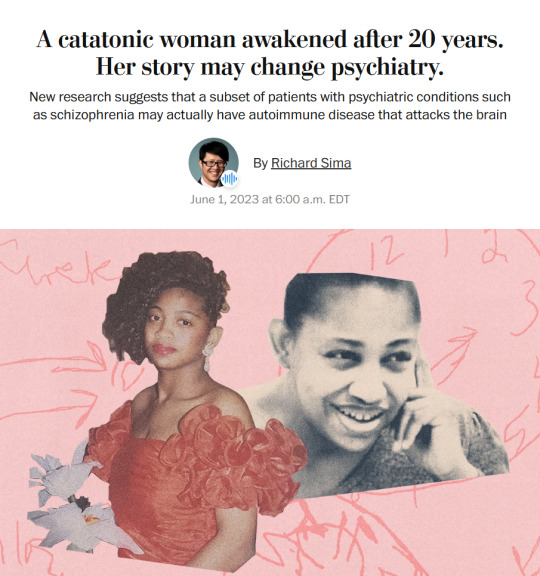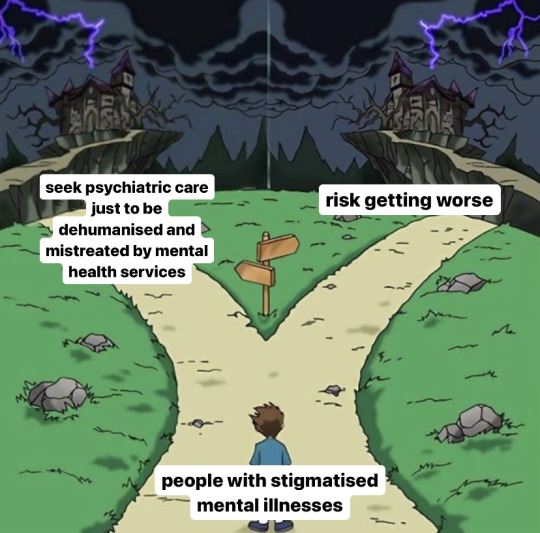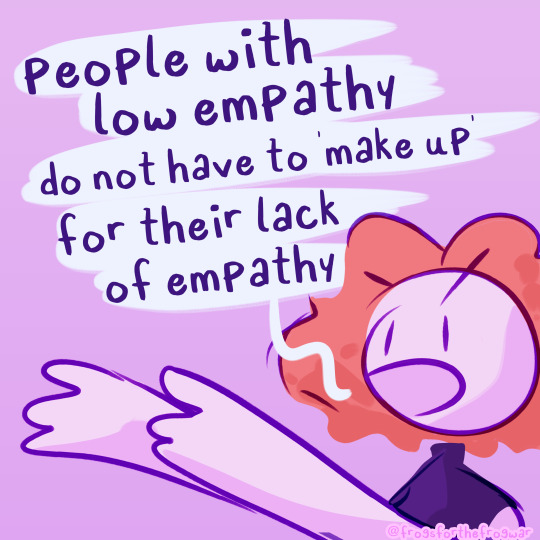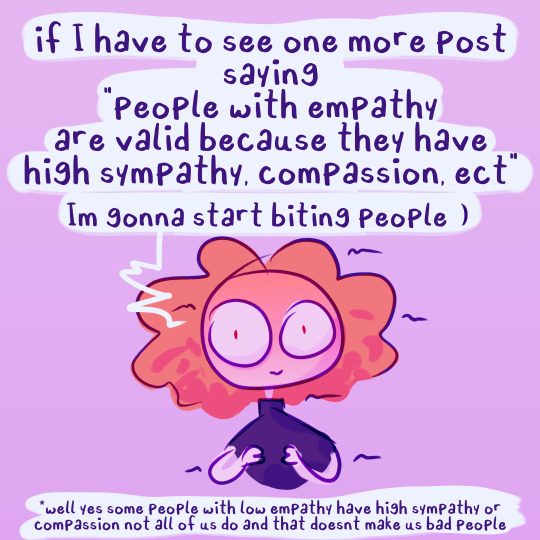#and psychotic
Text
I could fix him but I kinda like him a little murderous and psychotic tho
#he would kill me too#but i don’t mind#love my sexy psychotic men#i don’t care about fixing him lol#can you tell i’m also insane?#i like my men broken#and deranged#and psychotic#with a dash of mommy issues#coriolanus snow x reader#anakin skywalker x reader#void stiles x reader#tom riddle x reader#mattheo riddle x reader#theodore nott x reader#ethan landry x reader#billy hargrove x reader#luke castellan x reader#aaron warner#cardan greenbriar#jonathan crane#patrick bateman#this is so unhealthy of me#also very unhinged#but also so real#this is the last time i’m going to talk about being a fixer upper i promise
2K notes
·
View notes
Text
I've become totally obsessed with The Cult of the Lamb... Legit it's so much fun and I highly recommend it!
10 notes
·
View notes
Text
it was raining a little this morning and a voice in my head was like “catch some rain water to put on your altar” and i said to myself i’m not getting any unless it’s booming thundering lightning and pouring down like a tsunami cause i don’t need no trickling energy on my altar. and now it’s raining like a damn monsoon and i’m like shit sorry to everyone that gotta drive 😭
2 notes
·
View notes
Text
“the intrusive thoughts won” “that’s psychotic” “i’m so delusional haha” “narcissistic abuse” “the weather is so bipolar” SHUT UP!!!!!! SHUT THE FUCK UP!!!!
#ocd#actually ocd#psychotic#actually psychotic#actually bipolar#bipolar disorder#cluster b#personality disorders#mental illness
16K notes
·
View notes
Text


Who’s wiping the floor with who? Honestly I say Greg and Fred bc I’m biased but Roxanne held up against the mimic on her own so good for her ig
#fnaf#five nights at freddy's#five nights at freddy's security breach#fnaf sb ruin#security breach ruin#fnaf security breach#glamrock freddy#fnaf gregory#fnaf cassie#roxanne wolf#yes I rendered roxys ruined endo face just to cover it up bc I’m psychotic#rendered#art
4K notes
·
View notes
Text
We NEED to reevaluate how we view people with "red flags" that don't actually indicate harm to anyone. Things like "doesn't like animals," "doesn't have pets," "my pets immediately distrust them, so that means they're Secretly Evil."
I have a psychotic disorder. I suffer from flat affect. I have zero control over how I am emoting, and very often my emotional readout is completely blank. A LOT of animals (dogs especially) have exhibited aggression and fear around me ever since this started. (There are only TWO dogs I've met in the last five years that didn't BITE ME.) Dogs are unsettled by me because of a symptom of my psychosis--a condition that is out of my control that IS NOT DANGEROUS and doesn't harm anyone.
I also have a severe autoimmune disease and severe allergies to basically all animals. Whenever I tell people I can't come over because they have pets, or I don't have/want pets of my own, the IMMEDIATE response I always get is "why don't you like animals?" So I'm always pretty pissed off when I have to say, "I'm severely allergic. Don't fucking assume I have an undesireable quality just because I'm not a pet owner."
Another ableist red flag we need to talk about is "has no other friends/all their friends break up with them." Hi. I'm physically disabled with a digestive disease and a degenerative disease in my spine. That means my dietary restrictions are stupid and I can't sit/stand/walk for more than 15 minutes without being in pain. Most of the friends I break up with, I do so BECAUSE THEY ARE INCREDIBLY ABLEIST TO ME with no visible potential of changing. From people relentlessly harrassing me about lifestyle changes to not accepting correction or feedback when I tell them "hey, you CAN'T do x because it triggers y condition." If they argue or blow me off, I'm not their fucking friend!
Tl;dr: Disabled, chronically ill, and people with "scary" mental illnesses are often lumped in with "bad people" for characteristics that hurt no one and aren't in their control. Stop using "my dog is uncomfortable around them" as a litmus test for everyone you hang out with.
#chronic illness#disabled#disability#chronic pain#ableism#saneism#not to mention that its literally dangerous for disabled and psychotic people to be isolated and demonized.#its not just that no one want to be my friend. its that people are that much closer to putting me in danger because i dont fit-#-their standard of a 'good person.'
12K notes
·
View notes
Text
we are so ableist about memory. people with good memory take for granted the fact that they can recall as much as they can, and use that to taunt, guilt and threaten people with memory issues. many neurotypes and mental illnesses cause memory lapses. traumatic brain injuries can cause memory lapses. brain cancer can cause memory lapses.
even if your memory is good, it's not right to guilt someone because they can't remember something. trust me, people with memory problems are desperately trying to remember: it's just that we literally can't. it is a very literal "i can't remember".
#adhd#psychosis#psychotic disorders#autism#memory problems#memory issues#did#dissociative identity disorder#dpdr#osdd#mental health#neurodivergences#schizophrenia#schizohprenic#actually autistic#actually adhd#actually schizophrenic#depression#our writing
2K notes
·
View notes
Text
There’s nothing inherently “scary” about someone talking to themself in public.
There’s nothing “scary” about someone rocking back and forth in public.
There’s nothing “scary” about someone pacing back and forth in public.
Some of y’all are just ableist.
#Disability#Disabled#Multiply Disabled#Disabilities#Disability Rights#Disability Justice#Schizophrenia#Actually Schizophrenic#Autistic#Autism#Actually Autistic#Psychosis#Psychotic#Psychosis Awareness#Schizophrenia Awareness#Neurodivergent#Neurodiversity#Neurodiverse#Autism Awareness#Mad Liberation#Mental Illness#Mental Illnesses#Mentally Ill#Disability Awareness#Mental Health#Mental Health Awareness#Anti Ableism#Anti Ableist
5K notes
·
View notes
Text

Story from the Washington Post here, non-paywall version here.
Washington Post stop blocking linksharing and shit challenge.
"The young woman was catatonic, stuck at the nurses’ station — unmoving, unblinking and unknowing of where or who she was.
Her name was April Burrell.
Before she became a patient, April had been an outgoing, straight-A student majoring in accounting at the University of Maryland Eastern Shore. But after a traumatic event when she was 21, April suddenly developed psychosis and became lost in a constant state of visual and auditory hallucinations. The former high school valedictorian could no longer communicate, bathe or take care of herself.
April was diagnosed with a severe form of schizophrenia, an often devastating mental illness that affects approximately 1 percent of the global population and can drastically impair how patients behave and perceive reality.
“She was the first person I ever saw as a patient,” said Sander Markx, director of precision psychiatry at Columbia University, who was still a medical student in 2000 when he first encountered April. “She is, to this day, the sickest patient I’ve ever seen.” ...
It would be nearly two decades before their paths crossed again. But in 2018, another chance encounter led to several medical discoveries...
Markx and his colleagues discovered that although April’s illness was clinically indistinguishable from schizophrenia, she also had lupus, an underlying and treatable autoimmune condition that was attacking her brain.
After months of targeted treatments [for lupus] — and more than two decades trapped in her mind — April woke up.
The awakening of April — and the successful treatment of other people with similar conditions — now stand to transform care for some of psychiatry’s sickest patients, many of whom are languishing in mental institutions.
Researchers working with the New York state mental health-care system have identified about 200 patients with autoimmune diseases, some institutionalized for years, who may be helped by the discovery.
And scientists around the world, including Germany and Britain, are conducting similar research, finding that underlying autoimmune and inflammatory processes may be more common in patients with a variety of psychiatric syndromes than previously believed.
Although the current research probably will help only a small subset of patients, the impact of the work is already beginning to reshape the practice of psychiatry and the way many cases of mental illness are diagnosed and treated.
“These are the forgotten souls,” said Markx. “We’re not just improving the lives of these people, but we’re bringing them back from a place that I didn’t think they could come back from.” ...
Waking up after two decades
The medical team set to work counteracting April’s rampaging immune system and started April on an intensive immunotherapy treatment for neuropsychiatric lupus...
The regimen is grueling, requiring a month-long break between each of the six rounds to allow the immune system to recover. But April started showing signs of improvement almost immediately...
A joyful reunion
“I’ve always wanted my sister to get back to who she was,” Guy Burrell said.
In 2020, April was deemed mentally competent to discharge herself from the psychiatric hospital where she had lived for nearly two decades, and she moved to a rehabilitation center...
Because of visiting restrictions related to covid, the family’s face-to-face reunion with April was delayed until last year. April’s brother, sister-in-law and their kids were finally able to visit her at a rehabilitation center, and the occasion was tearful and joyous.
“When she came in there, you would’ve thought she was a brand-new person,” Guy Burrell said. “She knew all of us, remembered different stuff from back when she was a child.” ...
The family felt as if they’d witnessed a miracle.
“She was hugging me, she was holding my hand,” Guy Burrell said. “You might as well have thrown a parade because we were so happy, because we hadn’t seen her like that in, like, forever.”
“It was like she came home,” Markx said. “We never thought that was possible.”
...After April’s unexpected recovery, the medical team put out an alert to the hospital system to identify any patients with antibody markers for autoimmune disease. A few months later, Anca Askanase, a rheumatologist and director of the Columbia Lupus Center,who had been on April’s treatment team, approached Markx. “I think we found our girl,” she said.
Bringing back Devine
When Devine Cruz was 9, she began to hear voices. At first, the voices fought with one another. But as she grew older, the voices would talk about her, [and over the years, things got worse].
For more than a decade, the young woman moved in and out of hospitals for treatment. Her symptoms included visual and auditory hallucinations, as well as delusions that prevented her from living a normal life.
Devine was eventually diagnosed with schizoaffective disorder, which can result in symptoms of both schizophrenia and bipolar disorder. She also was diagnosed with intellectual disability.
She was on a laundry list of drugs — two antipsychotic medications, lithium, clonazepam, Ativan and benztropine — that came with a litany of side effects but didn’t resolve all her symptoms...
She also had lupus, which she had been diagnosed with when she was about 14, although doctors had never made a connection between the disease and her mental health...
Last August, the medical team prescribed monthly immunosuppressive infusions of corticosteroids and chemotherapy drugs, a regime similar to what April had been given a few years prior. By October, there were already dramatic signs of improvement.
“She was like ‘Yeah, I gotta go,’” Markx said. “‘Like, I’ve been missing out.’”
After several treatments, Devine began developing awareness that the voices in her head were different from real voices, a sign that she was reconnecting with reality. She finished her sixth and final round of infusions in January.
In March, she was well enough to meet with a reporter. “I feel like I’m already better,” Devine said during a conversation in Markx’s office at the New York State Psychiatric Institute, where she was treated. “I feel myself being a person that I was supposed to be my whole entire life.” ...
Her recovery is remarkable for several reasons, her doctors said. The voices and visions have stopped. And she no longer meets the diagnostic criteria for either schizoaffective disorder or intellectual disability, Markx said...
Today, Devine lives with her mother and is leading a more active and engaged life. She helps her mother cook, goes to the grocery store and navigates public transportation to keep her appointments. She is even babysitting her siblings’ young children — listening to music, taking them to the park or watching “Frozen 2” — responsibilities her family never would have entrusted her with before her recovery.
Expanding the search for more patients
While it is likely that only a subset of people diagnosed with schizophrenia and psychotic disorders have an underlying autoimmune condition, Markx and other doctors believe there are probably many more patients whose psychiatric conditions are caused or exacerbated by autoimmune issues...
The cases of April and Devine also helped inspire the development of the SNF Center for Precision Psychiatry and Mental Health at Columbia, which was named for the Stavros Niarchos Foundation, which awarded it a $75 million grant in April. The goal of the center is to develop new treatments based on specific genetic and autoimmune causes of psychiatric illness, said Joseph Gogos, co-director of the SNF Center.
Markx said he has begun care and treatment on about 40 patients since the SNF Center opened. The SNF Center is working with the New York State Office of Mental Health, which oversees one of the largest public mental health systems in America, to conduct whole genome sequencing and autoimmunity screening on inpatients at long-term facilities.
For “the most disabled, the sickest of the sick, even if we can help just a small fraction of them, by doing these detailed analyses, that’s worth something,” said Thomas Smith, chief medical officer for the New York State Office of Mental Health. “You’re helping save someone’s life, get them out of the hospital, have them live in the community, go home.”
Discussions are underway to extend the search to the 20,000 outpatients in the New York state system as well. Serious psychiatric disorders, like schizophrenia, are more likely to be undertreated in underprivileged groups. And autoimmune disorders like lupus disproportionately affect women and people of color with more severity.
Changing psychiatric care
How many people ultimately will be helped by the research remains a subject of debate in the scientific community. But the research has spurred excitement about the potential to better understand what is going on in the brain during serious mental illness...
Emerging research has implicated inflammation and immunological dysfunction as potential players in a variety of neuropsychiatric conditions, including schizophrenia, depression and autism.
“It opens new treatment possibilities to patients that used to be treated very differently,” said Ludger Tebartz van Elst, a professor of psychiatry and psychotherapy at University Medical Clinic Freiburg in Germany.
In one study, published last year in Molecular Psychiatry, Tebartz van Elst and his colleagues identified 91 psychiatric patients with suspected autoimmune diseases, and reported that immunotherapies benefited the majority of them.
Belinda Lennox, head of the psychiatry department at the University of Oxford, is enrolling patients in clinical trials to test the effectiveness of immunotherapy for autoimmune psychosis patients.
As a result of the research, screenings for immunological markers in psychotic patients are already routine in Germany, where psychiatrists regularly collect samples from cerebrospinal fluid.
Markx is also doing similar screening with his patients. He believes highly sensitive and inexpensive blood tests to detect different antibodies should become part of the standard screening protocol for psychosis.
Also on the horizon: more targeted immunotherapy rather than current “sledgehammer approaches” that suppress the immune system on a broad level, said George Yancopoulos, the co-founder and president of the pharmaceutical company Regeneron.
“I think we’re at the dawn of a new era. This is just the beginning,” said Yancopoulos."
-via The Washington Post, June 1, 2023
#mental illness#schizophrenia#schizoaffective#psychotic disorders#psychology#neurology#autoimmune#autoimmine disease#neuroscience#medical news#medical research#catatonia#immunotherapy#immune system#clinical trials#good news#hope
6K notes
·
View notes
Text
it’s so difficult being someone who needs to talk to themself in public. there is no way for me to avoid looking “crazy” when im constantly shouting or whispering to myself or jerking my neck. i wish people understood this doesn’t mean im dangerous. people with many different mental illnesses or disorders face this issue as well and all situations deserve more compassion. treat people who talk to themselves loudly or quietly, continuously, repeatedly, or with pauses, the same as anyone else.
Edit: not targeted at anyone but I feel the need to say that This post is about tics and tourettes and psychosis please do not derail, your experience with needing to mutter bc of ADHD, autism, etc, is valid but different than being uncontrollably loud, and this is about an experience that's often left out of conversation.
#neurdivergency#tourette’s#ts#tourette’s syndrome#mental illness#neurodiversity#neuropunk#ticpunk#tourette’s awareness#tic disorder#psychotic safe space#psychotic disorders#psychosis awareness#neurodivergent
6K notes
·
View notes
Text
i wish the world was a more gentle place to psychotic people
6K notes
·
View notes
Text
If you struggle with substance abuse but not addiction, you still deserve support. If you struggle with suicidality/self harm urges but don't act on it, you still deserve support. If you struggle with psychosis and paranoia but have insight, you still deserve support. If you struggle with anything but are "coping with it," you still deserve support.
You dont need to be in imminent crisis to get help - safety planning, harm reduction, resources, and accommodations. You're still struggling. You're still suffering, You're still at risk/in danger. You deserve better - you need better. Your health and wellbeing matters.
#softspoonie#disabled#disability#mental health#mental illness#suicidality#self harm#suicide#suicide prevention#drug use#substance abuse#addiction#harm reduction#psychosis#paranoia#psychotic#actually psychotic#mad punk#madpunk#mental health awareness#mental health support#mentally ill#depression
11K notes
·
View notes
Text

my anhedonia is eating me alive so i’m making these mental illness memes to cope
#actually aspd#actually npd#aspd#npd#clusterb#actually mentally ill#actually bpd#actuallyaspd#actuallynpd#cluster b#bpd#actuallybpd#actually schizophrenic#actually delusional#actually borderline#actually obsessive#actually autistic#actually antisocial#actually narcissistic#schizophrenia#schizospec#psychotic spectrum#did#osdd#ocd#actually pocd#mental illness#cluster b personality disorder#cluster b memes#npd meme
1K notes
·
View notes
Photo




We love people with low and no empathy here!
#low empathy#no empathy#autism#actually psychotic#actually autistic#psycotic#autistic#npd positivity#npd#bpd#hpd#aspd#cluster b#schizophrenia
18K notes
·
View notes
Text
Friendly (or unfriendly if you're against this) reminder that this blog is supportive of ALL disorders. This blog does not think ANY disorder inherently makes someone a bad person, and is against any disorder being demonized. This blog wholeheartedly believes that a bad person having a disorder, yes, even if things that are also symptoms of their disorder are part of what caused harm, does not make the disorder a "bad" or "evil" disorder or excuse ableism and demonization directed towards the disorder.
Yes this includes personality disorders
Including npd and aspd
Yes this includes all psychotic disorders & disorders that cause psychotic symptoms
Yes this includes paraphilic disorders. All of them.
Yes this includes disorders that cause, or are even characterized by, attention seeking
Yes this includes disorders that directly have lying as a common symptom
Yes this includes dissociative disorders
Yes this includes any disorder with "gross" symptoms
Yes this includes physical disorders too
Yes this includes disorders that can cause loss of control of any kind- control of speech, control of body movement, etc.
Yes tis includes disorders that make someone "look scary"
This goes for literally any fucking disorder. There are not exceptions.
#disability activism#ableism#demonization#disability awareness#personality disorders#npd#aspd#psychotic#psychotic disorders#paraphilic disorder#attention seeking#pathological lying#dissociative disorder#idk what other tags to put#also additional note I literally have a couple disorders on this list#and symptoms of several too#so if you're thinking of trying to argue on this post just fuck off#I guarantee you will not change my mind#and I don't want to hear it either
2K notes
·
View notes
Text

#sooooo riyal#my favourite psychotic babyboy#will graham#hannigram#hannibal#hanniblogging#hannibal lecter
1K notes
·
View notes